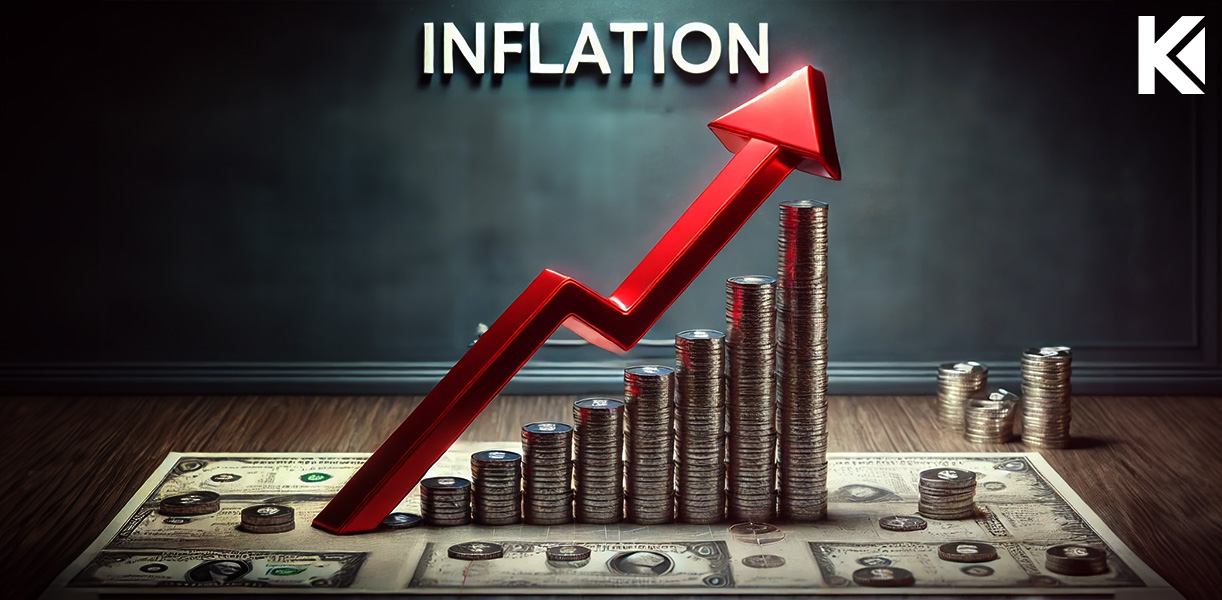Inflation is a term we often hear, but its impact on everyday life is profound. It refers to the gradual rise in prices over time, reducing the purchasing power of money. Whether you’re a homeowner, a saver, or a shopper, understanding inflation is essential to making informed financial decisions. This guide explains what inflation is, how it works, and strategies to mitigate its effects on your finances.
What Is Inflation?
Inflation occurs when the general price level of goods and services rises over a period, leading to decreased purchasing power:
- Definition: A sustained increase in the average price of goods and services in an economy.
- Measurement: Often measured by the Consumer Price Index (CPI), which tracks the cost of a basket of goods and services.
- Types of Inflation:
- Demand-Pull Inflation: Occurs when demand for goods and services exceeds supply.
- Cost-Push Inflation: Results from rising production costs, such as raw materials or wages.
- Built-In Inflation: Arises from expectations of future inflation, leading to wage-price spirals.
How Inflation Erodes Purchasing Power
Inflation reduces the value of money over time, impacting your ability to buy goods and services:
- Rising Costs: Everyday items like groceries, fuel, and housing become more expensive.
- Fixed Incomes: Those on fixed incomes, such as retirees, may struggle to keep up with rising expenses.
- Savings Impact: Inflation erodes the real value of savings if interest rates don’t keep pace.
Example: If inflation is 3% annually, something that costs $100 today will cost $103 next year, assuming no other changes.
Causes of Inflation
Several factors can drive inflation in an economy:
- Economic Growth: Increased demand for goods and services during economic expansions.
- Supply Chain Disruptions: Shortages in raw materials or labor can lead to higher production costs.
- Monetary Policy: Excessive money supply in the economy can lead to higher prices.
- Global Factors: Rising oil prices, geopolitical tensions, or import costs can influence domestic inflation.
Effects of Inflation on Your Finances
Inflation affects various aspects of financial planning:
- Housing Costs: Home prices and rents tend to rise, increasing the cost of living.
- Interest Rates: Central banks may raise rates to combat inflation, impacting loans and mortgages.
- Investments: Stocks and real estate may offer a hedge against inflation, while cash loses value.
How to Protect Yourself from Inflation
- Invest Wisely:
- Focus on assets that typically outpace inflation, such as stocks, real estate, or inflation-protected securities.
- Diversify your portfolio to manage risk effectively.
- Reduce Debt:
- Pay down high-interest debt to avoid the compounding effects of rising rates.
- Consider refinancing fixed-rate loans if interest rates are favorable.
- Boost Savings Returns:
- Use high-yield savings accounts or certificates of deposit (CDs) to combat the impact of inflation.
- Explore Treasury Inflation-Protected Securities (TIPS) for guaranteed returns adjusted for inflation.
- Increase Income:
- Negotiate for higher wages or seek additional income streams to maintain purchasing power.
- Control Spending:
- Prioritize essential expenses and avoid unnecessary costs during inflationary periods.
Conclusion
Understanding inflation and its impact on purchasing power is crucial for navigating financial challenges and planning for the future. By recognizing its causes and effects, you can take proactive steps to safeguard your finances. With strategies like smart investing, debt reduction, and controlled spending, you can minimize the impact of rising prices and protect your purchasing power over time.






